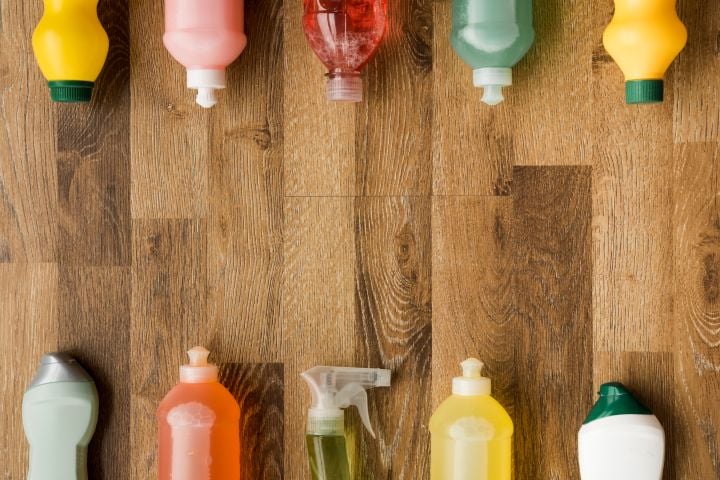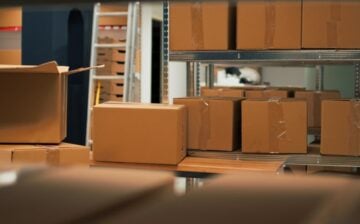Household chemicals, ranging from cleaning agents to pesticides, are essential for maintaining cleanliness and hygiene in our homes. However, improper storage of these chemicals can pose significant risks to health and safety. To mitigate these dangers, it’s crucial to adhere to certain guidelines for storing household chemicals. This article provides comprehensive advice on how to store these products safely and effectively.

Always Check the Label First
The first and foremost rule for storing household chemicals is to always check the label. Manufacturers provide critical information regarding the safe use and storage of their products. Labels typically include instructions on temperature conditions, shelf life, and any substances the product should not be stored near. By following these instructions, you can prevent accidents and ensure that the chemicals remain effective.
Appropriate Storage Conditions
Many household chemicals require specific storage conditions to remain safe and effective. For example, products such as bleach or ammonia must be kept away from heat sources to prevent reactions that could lead to explosions or the release of toxic fumes. Additionally, some cOver time, labels can fade, making it difficult to recognize what’s inside the container. If you transfer a chemical to a different container, immediately label it with the chemical’s name and any important safety information. This practice prevents accidents and ensures that you and others can always identify and use the chemicals correctly.
Proper Disposal of Chemicals
Many household chemicals require special disposal methods to protect public health and the environment. Pouring these substances down the drain or throwing them in the trash can contaminate water supplies and harm wildlife. Instead, research local regulations regarding the disposal of hazardous household chemicals. Many communities offer hazardous chemical disposal centers where you can safely dispose of these products. Some areas also hold periodic collection events for hazardous waste. Chemical blending services may also be utilized for the disposal of certain chemicals.
Conclusion
Proper storage of household chemicals is essential for maintaining a safe and healthy home environment. By always checking the label, ensuring appropriate storage conditions, keeping chemicals out of reach of children and pets, regularly inspecting containers, labeling everything, and knowing how to dispose of chemicals properly, you can mitigate the risks associated with these substances.
Taking these precautions not only protects your household but also contributes to environmental safety. By being diligent about how you store and dispose of household chemicals, you can enjoy the benefits of these products without compromising safety. Remember, a little care goes a long way in preventing accidents and ensuring the well-being of your loved ones and the environment.hemicals should not be stored together. For instance, mixing bleach with ammonia can produce dangerous chloramine vapors.
Ensure that your storage area is cool, dry, and well-ventilated. Excessive heat, humidity, or poor ventilation can degrade the chemicals, making them less effective and more hazardous. Avoid storing chemicals in areas that experience temperature fluctuations, such as garages or attics.
Keeping Chemicals Out of Reach
One of the most crucial aspects of household chemical storage is ensuring that these substances are kept out of reach of children and pets. Curious kids and animals can easily find their way to these dangerous substances if they are stored in accessible places like under the sink. Instead, opt for high shelves or locked cabinets. Safety latches on cabinets can provide an additional layer of security.
Regularly Inspect Containers
Over time, the containers holding household chemicals can become weak and brittle, leading to potential leaks. Regularly inspect the containers for signs of wear and tear, such as cracks or corrosion. If you notice any damage, transfer the chemical to a new, properly labeled container. Always use containers designed for chemical storage to prevent reactions with the container material.
Label Everything
Labels are critical for identifying the contents and understanding how to handle them safely.
We hope you found this blog post on Proper Household Chemical Storage: Ensuring Safety And Longevity, useful. Be sure to check out our post on How to Organize Your Storage Onehunga Unit Before a Move for more great tips!
Have Experience in the Moving Industry? Want an Additional Income Stream? Work With All Around Moving!
Do you possess experience in the shipping industry, or moving, and looking for additional Income stream opportunity? Come see what All Around Moving has to offer to you!
The Work With Us program of Around Moving, affords experienced moving consultants with the special opportunity to develop their own moving consultant business from anywhere in the U.S.A.
We will provide you with a complete set-up to run your business. To learn more, click here.





